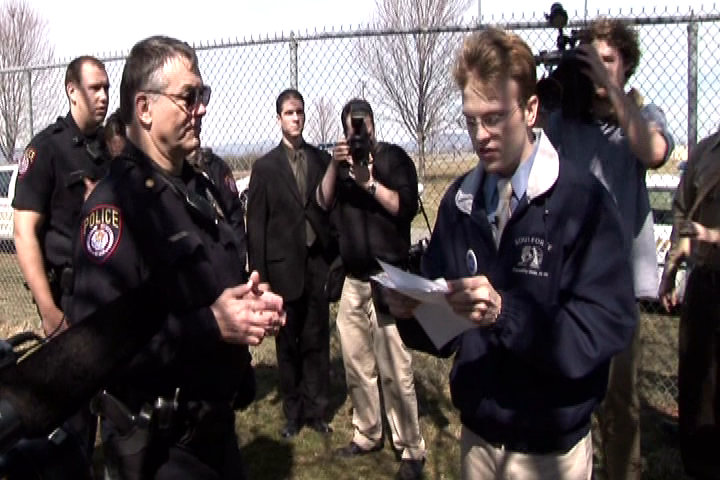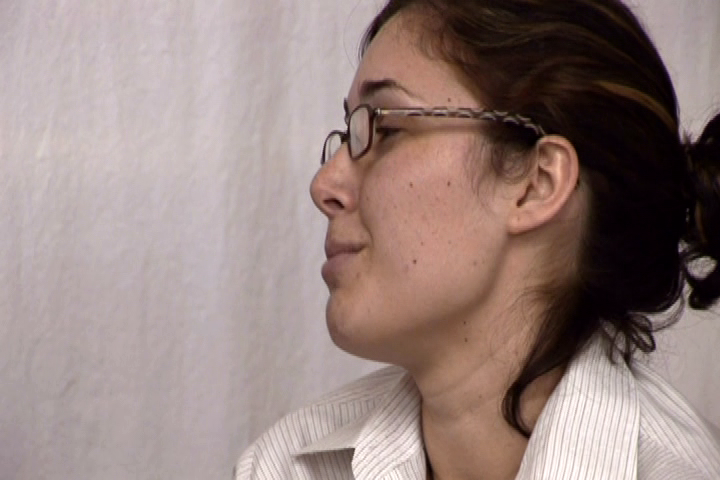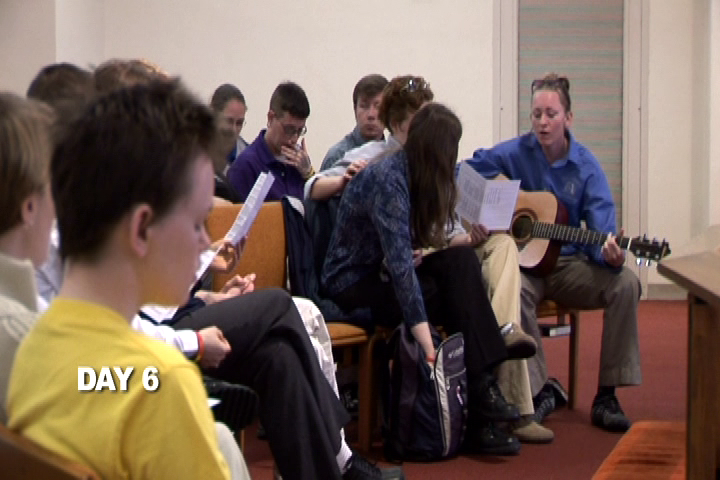Equality U

Most recent documentaries have one major obstacle that prevents them from widespread exposure, and that’s that they are intended to enlighten and/or change the minds of those people who would never watch a documentary in the first place. Political documentaries are the worst offenders because most of them are made by those on the left, so those on the right would understand their position. The filmmakers are apparently not aware that the places where documentaries play, small art theaters in big cities, do not exist in the sparsely populated and rural areas predominately filled with Republicans. So these films end up a pandering waste, preaching to the converted.
 Dave O’Brien’s Equality U is about a group of generally religious college-age students and activists, who bus around the US to the 20 colleges (as of 2006) that for religious reasons, do not allow homosexuals on their campuses. They attempt to engage the students and/or faculty in conversation about this prohibitive way of thinking, but seem to skip over the things that weigh down these types of documentaries, because it assumes that we are already on the side of its subjects. The resulting footage, where the group members are arrested, attempt to hold rallies on school grounds, and hold clandestine meetings with secretly gay students of these universities, completely ignores what should be the most important part of the film, that being what exactly these privileged and naïve nomads say to those they are interested in starting a dialogue with. Most of the footage shows the sanctimonious, humorless protestors, worrying about the impending confrontations, discussing whether or not intentionally getting arrested for trespassing in front of the media is useful for their group (there’s so many cameras at each event that the only possible conclusion is that this press conference/protest was planned weeks in advance), though perhaps not enough about how disingenuous it is to the viewer who sees a news report about the event. Spontaneity creates drama, not checking with administrators and talking to PR people.
Dave O’Brien’s Equality U is about a group of generally religious college-age students and activists, who bus around the US to the 20 colleges (as of 2006) that for religious reasons, do not allow homosexuals on their campuses. They attempt to engage the students and/or faculty in conversation about this prohibitive way of thinking, but seem to skip over the things that weigh down these types of documentaries, because it assumes that we are already on the side of its subjects. The resulting footage, where the group members are arrested, attempt to hold rallies on school grounds, and hold clandestine meetings with secretly gay students of these universities, completely ignores what should be the most important part of the film, that being what exactly these privileged and naïve nomads say to those they are interested in starting a dialogue with. Most of the footage shows the sanctimonious, humorless protestors, worrying about the impending confrontations, discussing whether or not intentionally getting arrested for trespassing in front of the media is useful for their group (there’s so many cameras at each event that the only possible conclusion is that this press conference/protest was planned weeks in advance), though perhaps not enough about how disingenuous it is to the viewer who sees a news report about the event. Spontaneity creates drama, not checking with administrators and talking to PR people.
 These manipulative, false conflicts might have been okay had any one of the members of the bus tour group (they act like tourists gawking at third world poverty) been remotely interesting or sympathetic. Just because you have a good cause, doesn’t make you worth talking to. The sole moments of respite come from some of the already disgraced and shamed students, telling their stories of being treated like they were invisible, and slowly phased out of the school. But that’s about eight minutes of footage.
These manipulative, false conflicts might have been okay had any one of the members of the bus tour group (they act like tourists gawking at third world poverty) been remotely interesting or sympathetic. Just because you have a good cause, doesn’t make you worth talking to. The sole moments of respite come from some of the already disgraced and shamed students, telling their stories of being treated like they were invisible, and slowly phased out of the school. But that’s about eight minutes of footage.
The only other way to avoid letting your mind wander is in imagining the possible repartee the moral musketeers had with those they handed out pamphlets to during the repetitive, endless 90 minutes of the movie (“These condescending bus dwellers want me to be open with them?”). Our heroes have even forgotten one of the main components of social progression; if you want change, you have to risk something. The worst thing that happens to our cruising crusaders in Equality U is that one of the group members has her father threaten to take away her trust fund.



